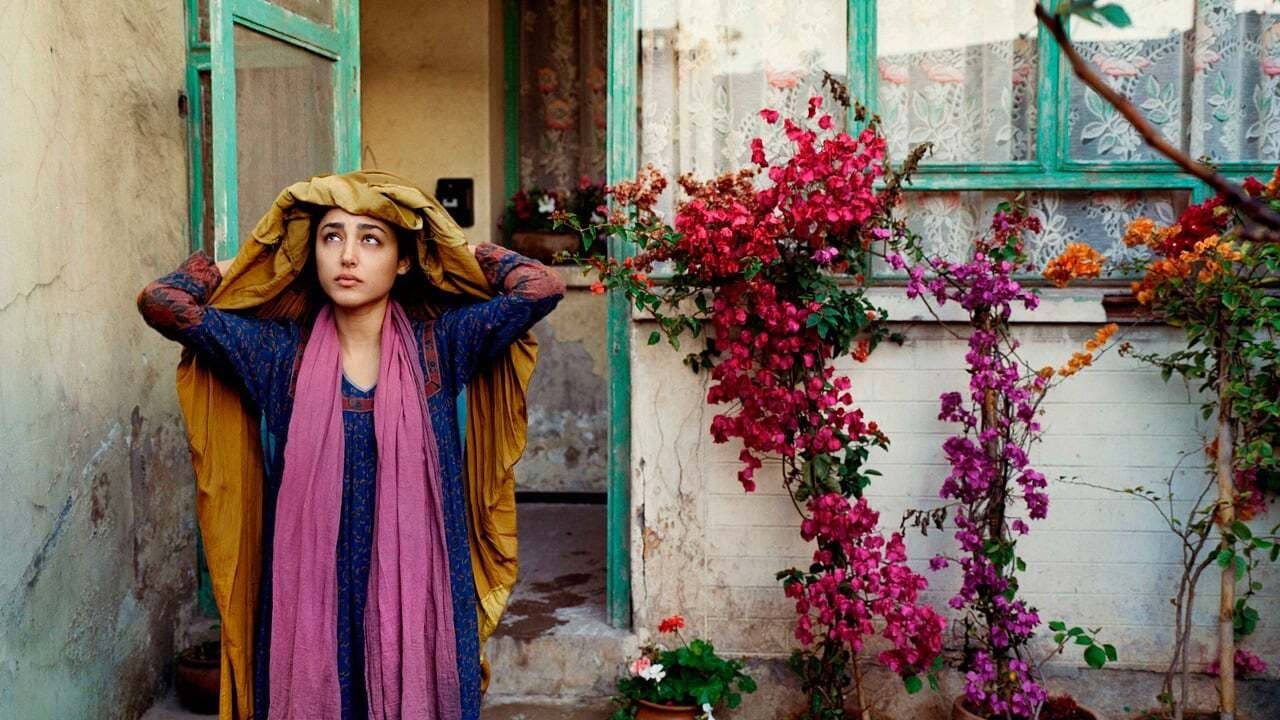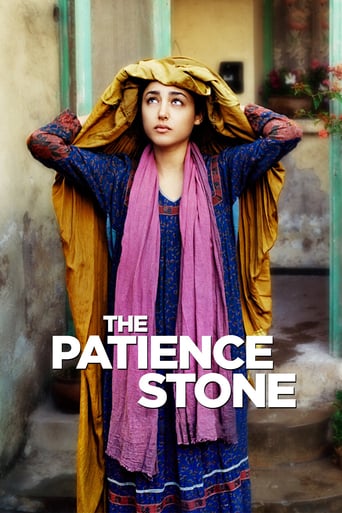

People are voting emotionally.
... View MoreIt is neither dumb nor smart enough to be fun, and spends way too much time with its boring human characters.
... View MoreStory: It's very simple but honestly that is fine.
... View MoreOne of the film's great tricks is that, for a time, you think it will go down a rabbit hole of unrealistic glorification.
... View MoreSo often times I find I am most appreciated in my role as husband, the less I say. Honestly, it came up the evening before I watched this film. That being said, I'm not quite willing to take a bullet in the neck to help the process. Alas only a bullet and no Oscar for Hamid Djavadan as the husband in this film. Although it used to be a theory that mute actresses could win an award for similar roles.Golshifteh Farahani is the actress here, and far from mute, she finds her voice/strength/resolve. Her beauty is striking, did anyone else find that detracted some from the dire dilapidation of her village and situation. The filmmakers did try to muss her up some, but in "The Patience Stone" we are reminded again that a jewel in the rough is still a jewel. Radiant.And this film is all hers, with perhaps the most soliloquies you'll see this side of graduation week at an arts college. Her face runs an impressive gamut of expression, but as I bought the air of impending danger (one scene in particular with a neighbor driven mad really resonated), that I had a hard time with her character registering anything more than shock. Granted I realize far too many people (and children) grow up in such troubling circumstances, and that alone is mind-boggling. (And soul-shaking.) There are interesting side-story and back-story aspects (The Aunt!!) so perhaps the book would be best to start with (I had intended to, but didn't get around to it.) Mostly this film is a story of perhaps the most impossible marital counseling one could ever expect.Although, there are some things I bet you will expect while watching it, and while the fair Ms. Farahani is Iranian, this film is definitely French and becomes so the more it progresses.Still something different to watch and contemplate (no Fatwa so far for the director). I did learn of Dari (a Farsi variant from Afghanistan, but I've no clue what native speakers of either thought about this film, and I would be curious.) Also the yellow burqa was an indelible image. I looked a little for Islamic symbolism for the same. Watching Farahani flip it on and still infuse that billowing robe with her energy was eye-catching. I did wonder as she went into a pharmacy at one point how people could quickly tell who is who in such a situation. I imagine it can be done, something about the specific burqa and how the woman moves within it....of course the voice, but it seems having a stunt double or misdirection/fake alibi by virtue of the burqa could happen.Probably identifying women in their burqas is easier than I can imagine, but perhaps misleading mullahs is easier than they too can imagine? Let me know when that film is made ;> The film definitely felt more like a play come to the big screen than a book, but perhaps the book was streamlined to fit. Guess I'd recommend trying to read it first, but watching the film is worth one's while, especially for fawning fans of Farahani.By the way, perhaps leaving some stones unturned is okay?
... View MoreAtiq Rahimi's 'The Patience Stone' tells the story of an Afghan woman, played by Golshifteh Farahani, in war-torn Kabul. She keeps watch over her comatose husband (Hamid Djavadan). She's left alone to care for herself and her two daughters, with little money and virtually no family support apart from an aunt.We learn of a life of torment for the young wife, before and during her marriage, and who is forced to take drastic measures just to survive and continue caring for her husband. Part confessional, part therapeutic, we see the wife talking openly and frankly to her husband about her past. One particular story relating to her wedding is both hilarious and tragic.Her frustrations turn to anger and hysteria, she becomes more emboldened in her thoughts as she knows this could be her only chance to be so brazenly honest. Ironically, this is the closest the woman comes to a happy relationship with her husband, who has been absent whether he has been with her or not. Its as if she is carrying the hopes of women in Afghanistan, railing against the oppression of men which is symbolised by her husband. His paralysis allows her to blossom, by the end of the film we see a changed woman.Exquisitely shot by Thierry Arbogast, 'The Patience Stone' is a wonderful study of a woman under immense restraint. Rahimi takes some big risks, as does Farahani, by breaking social, cultural, sexual and religious taboos in a film full of controversy. Farahani is exceptional, revealing the stress points of her character with tenderness and honesty. Her wonderfully poetic voice, and the way she tells the story, combined with such an expressive face, leaves a lasting impression on you.
... View MoreAs others have stated, this is an unusual film. It's amazing that the screenwriter-director who adapted his own play for the screen did not become another Salman Rushdie, with a fatwa directed against him. (Maybe that did happen and I just don't know about it.) While I agree with the film's central theme, the terrible injustices done to females in Muslim countries, I think the film goes too far to make its point. It ends up in the same category as movies like "Thelma and Louise" and "Sling Blade." Both of those films refused to include a straight male with anything decent or likable about him. All men were shown as being jerks at best. In "Silence of the Lambs," the only men Clarice could trust were much older (Scott Glenn, her boss) or crazy like Hannibal Lechter. The Scott Glenn character was okay because his age made him seem kind of asexual, not horny, not a threat.**SPOILERS** If its story is taken literally, "The Patience Stone" would actually be presenting us with a terribly dumb or delusional protagonist. The young Muslim woman who takes care of her obviously dead husband does not seem to notice any unpleasant odor coming from her husband's corpse as it lies in a room for several days. Nor does she take note of the rigor mortis that would have set in. The shock ending, which has this man suddenly open his eyes and become violent toward her after she reveals the final secret/insult to his "values" that is distasteful enough to awaken his corpse has to be taken in an allegorical, folktale sort of way. The filmmakers could not really be asking us to take his awakening at face value.As in "Sling Blade," in which a mentally challenged male is the only kind of straight male who is worthy of approval, in "The Patient Stone," only an orphaned young (still trainable) male -- who himself is abused by other men -- is worthy of the protagonist's love. Only a damaged male is a good male.**END OF SPOILERS** It's easy to root for this protagonist. She has been treated was than an animal by her religion and the men. But not every ax needs grinding that is this thorough. Not every pro-female-rights movie needs to demonize every male unless he is old or handicapped.
... View MoreA story of pain, resilience, loyalty and terrible choices which those of never (yet) subjected to the everyday horrors of war on our own doorstep have had to face. Brilliant story, well portrayed in subtle terms. No high drama which made it all the more poignant and human. Not one for the wham bang brigade, more one for the thoughtful watcher. Exquisitely shot: colours, set ups, scenes - everything was admirable. Unlike any film I have seen before. Brings home the pity of war, the damage it does to ordinary lives. Brilliant performances from everyone. See it. Remember it. Learn from it - in every way, as a human and as a film-maker.
... View More